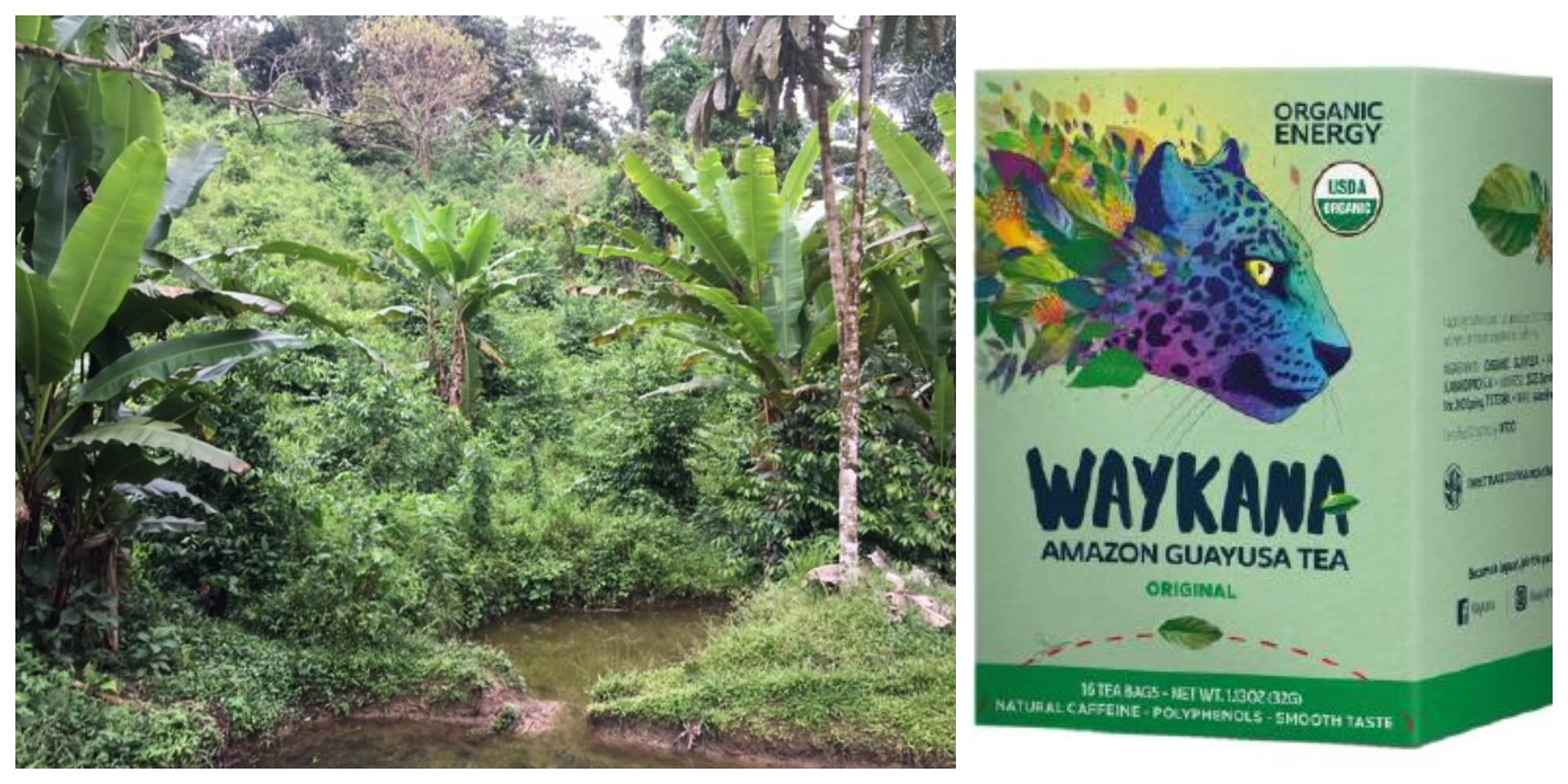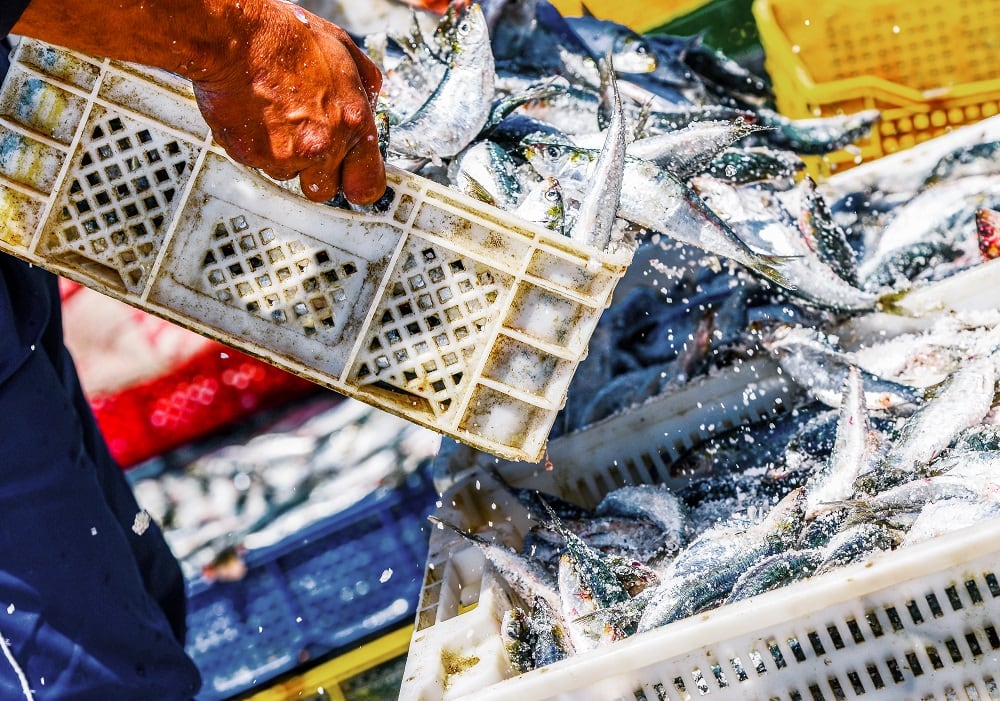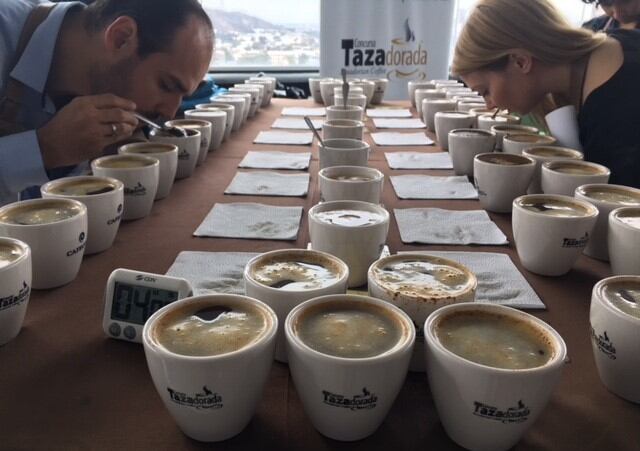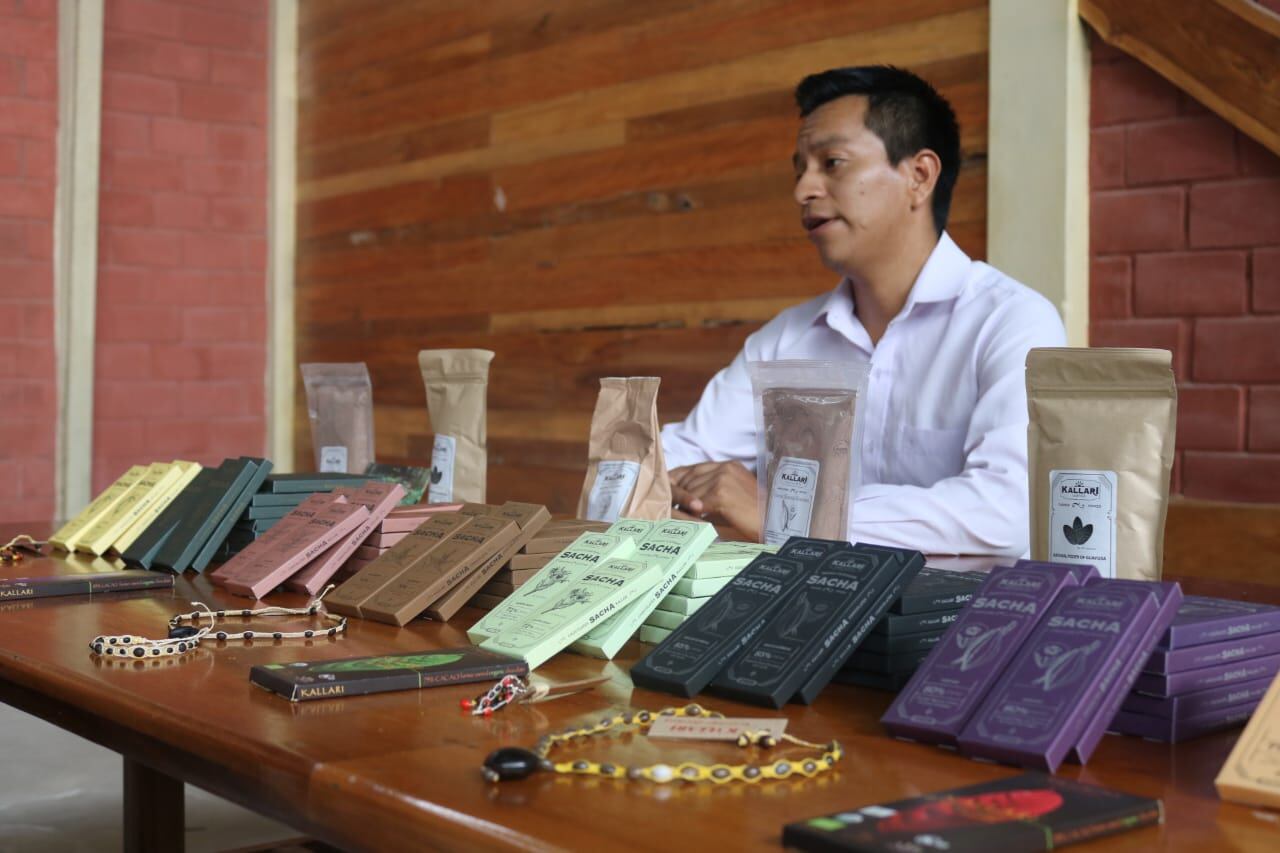Caffeine-rich guayusa is widely consumed as a tea in Ecuador, particularly among indigenous communities.
It has a rich history dating back generations as a morning ritual drink consumed by Kichwa families before sunrise to provide energy for the day ahead.
Guayusa contains roughly as much caffeine as a cup of coffee and more antioxidants than dark chocolate, raw cocoa nibs and goji berries*.
Technically, it’s not tea, but is derived from the same genus, Ilex, as Yerba Mate and is consumed much like tea.
‘Neglected stimulant’
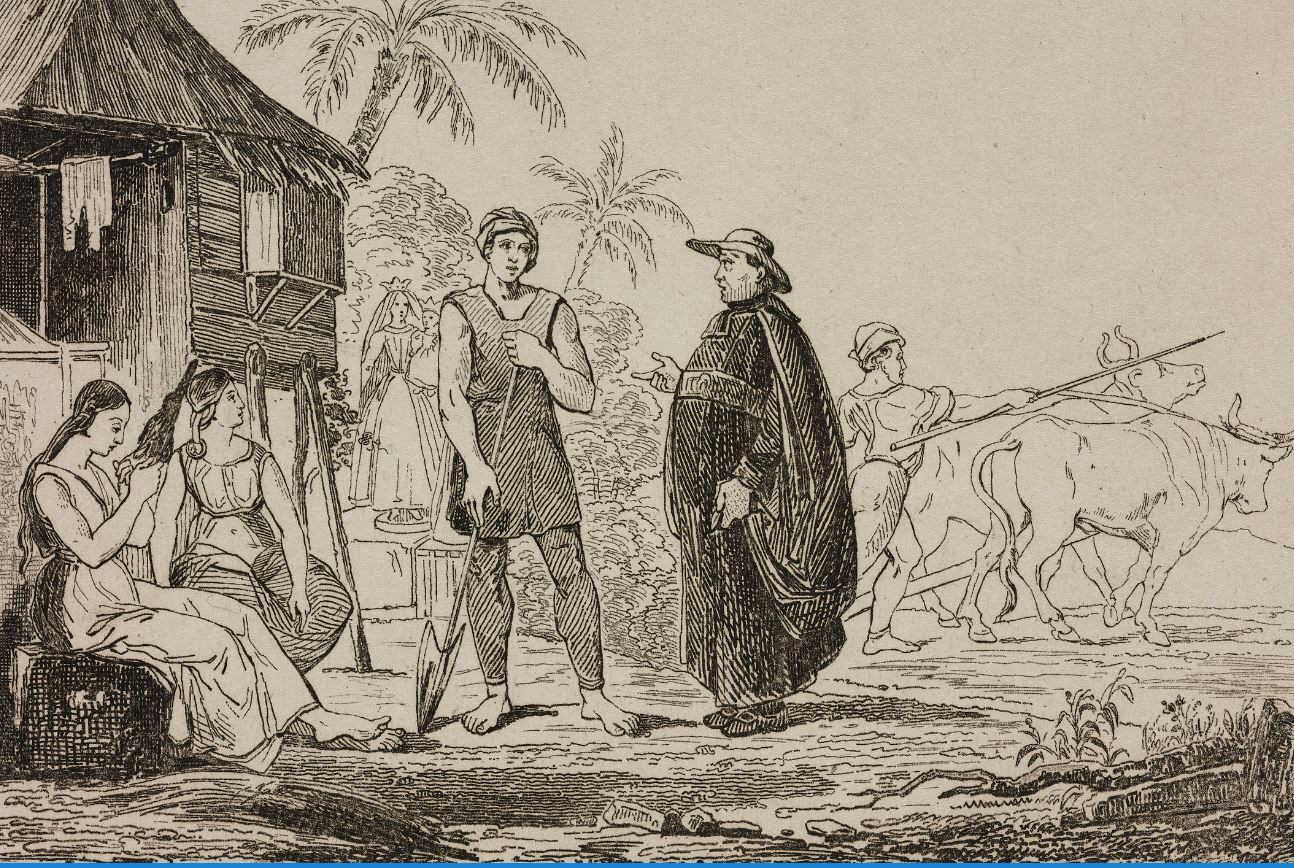
A 1968 article in scientific journal Economic Botany described guayusa as “a neglected stimulant from the Eastern Andean Foothills".
The journal cited a letter from Spanish Jesuit Juan Lorenzo Lucero in 1682 in which he said Jivaro Indians, to maintain their appearance, "were accustomed to drink a de- coction of an herb called guayusa, similar to laurel, several times daily.
“They were thus able to stay awake without losing conscious- ness for many nights, when they feared an invasion."
Reigniting ‘boring’ categories
The largest buyer is Ecuadorian company Runa, but others such as Waykana Tea Company, founded in 2015, have entered the market and see growth opportunities for guayusa as a natural energy source in branded goods.
Demetrio Santander, president and co-founder of Waykana, told this publication: "Now we have the European market open for guayusa - it's a big opportunity for a powerful functional ingredient to enter aggressively into drink categories.
EU Novel Foods approval
Aqueous extracts of dried leaves of Ilex guayusa won EU novel foods approval for herbal infusions and food supplements on December, 20, 2017, following an application from Runa. The EU says the ingredient should be labelled as ‘Extracts of dried leaves of Ilex guayusa’.
"There's a huge opportunity to break into categories that have been boring for decades because there hasn't been a nice-tasting, but functional product out there."
Santander said he sees potential for European startups to be the first to bring guayusa to their respective countries, adding guayusa tea could prove attractive to non-coffee drinkers.
Guayusa suffered when Jesuit presits were expelled
While Latin American crops such as cocoa and quinoa entered the mainstream, guayusa is still in an embryonic phase.
"Internationalization of guayusa really ended when Jesuit priests were expelled from Ecuador [in 1867],” said Santander.
"The location of guayusa at that time -and even today - was hard to get out of the Amazon.
"It was a lot easier for tea to become a worldwide product compared to getting a product from the Amazon," he said.
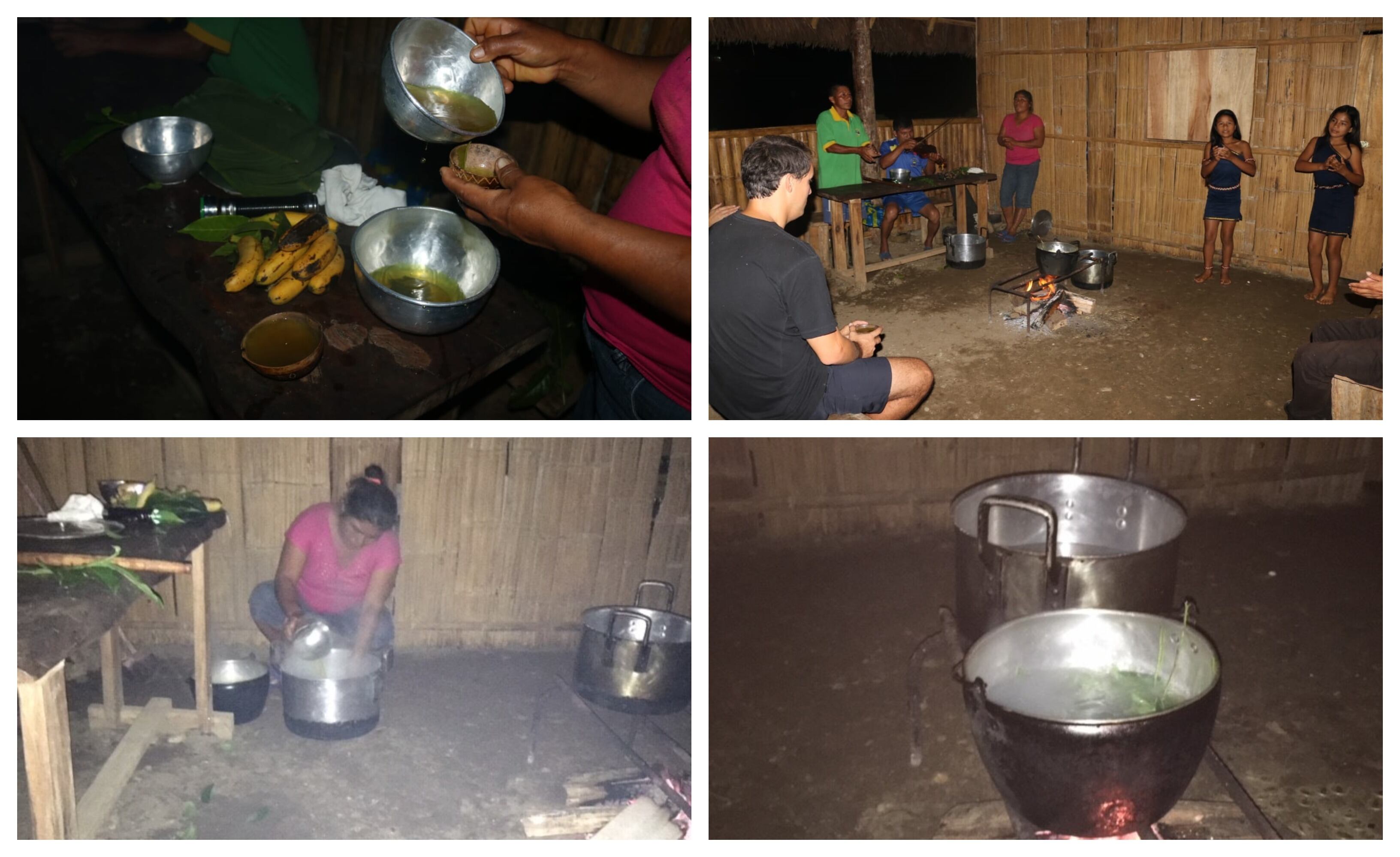
Waykana eyes Europe
Guayusa won EU novel foods approval in December 2017.
It came a year after Ecuador joined the EU's Trade Agreement with Colombia and Peru in 2016, which eliminates custom duties on imports.
"The first guayusa that was taken to the world was more dark black or brown [due to drying techniques]," said Santander. "What we have and what is becoming the standard is the greener flavor from the fresh leaf - that's what it's supposed to taste like."
Waykana Tea Company began selling branded guayusa tea in the domestic and export markets in 2016, but its main business is supplying guayusa as dried loose leaves or as an extract.
The firm also launched its own guayusa energy drink, Jaguar, in May this year. The natural energy drink is sold in 330 ml cans.
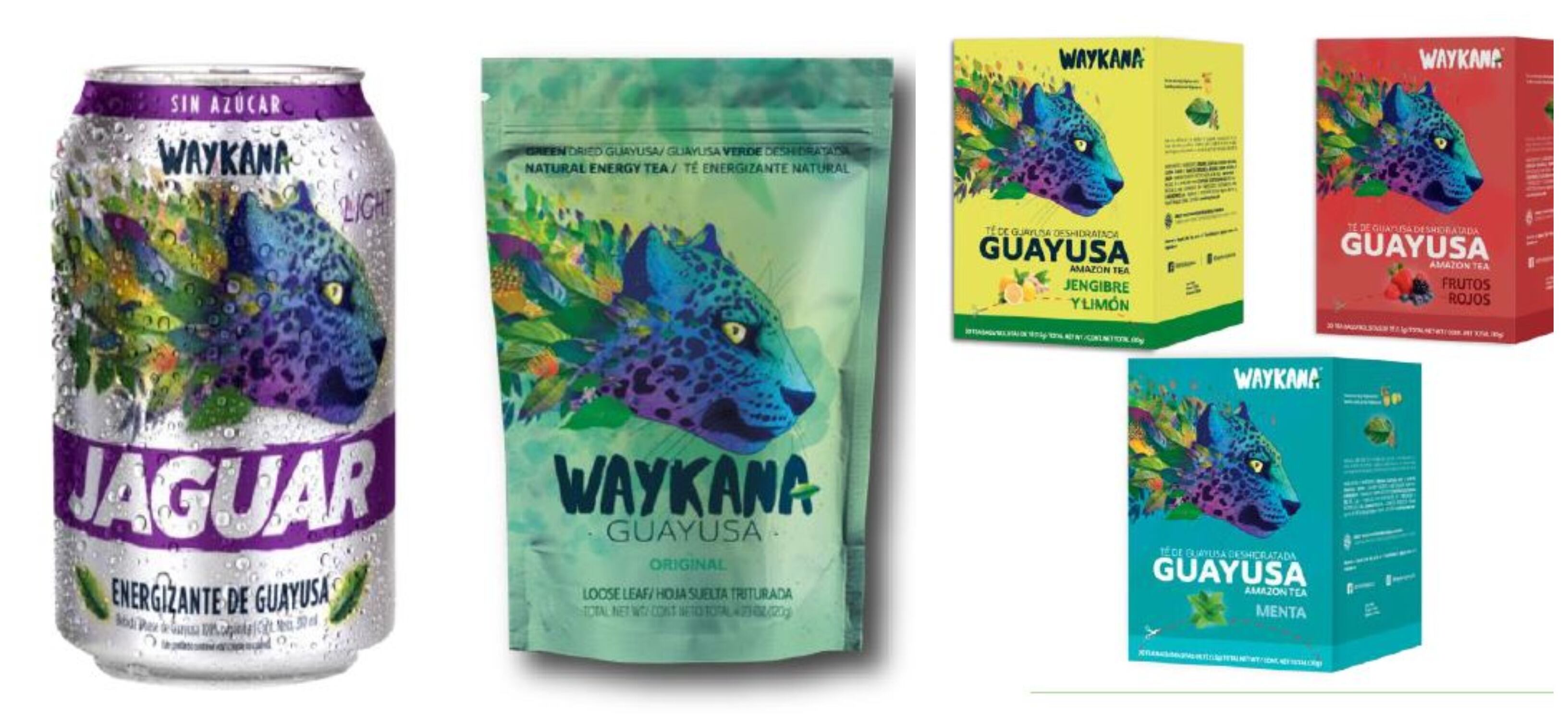
Fixed prices and agroforestry systems
Runa
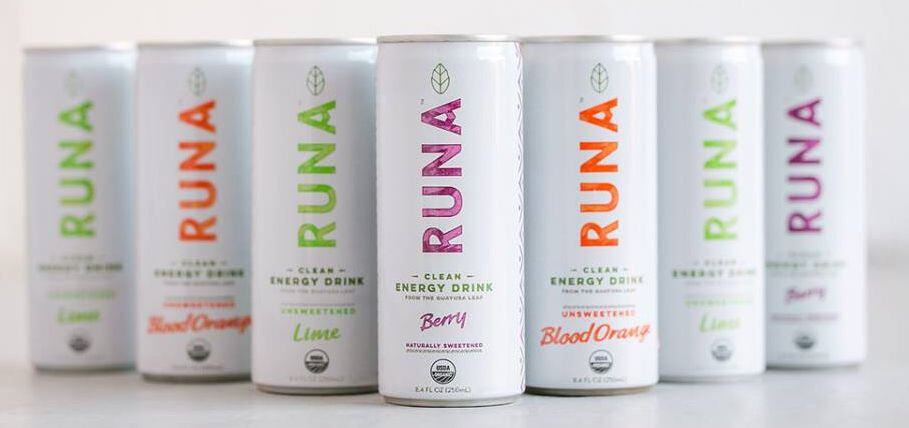
Waykana’s main competitor Runa has been on the market for eight years. All Market Inc. (AMI), owner of coconut water maker Vita Coco, acquired Runa in June 2018. Before the acquisition, Runa attracted celebrity investors such as Leonardo DiCaprio, Channing Tatum and Marlon Wayans.
Waykana sources its guayusa from 150 USDA and EU Organic-certified farmers and says it pays 25% more than the Fairtrade price.
"We have fixed prices for the guayusa, so it's not like other prducts that are volatile,” said Santander.
“We also have agroforestry systems, which we work with the growers to keep, so they are not chopping down trees to put guayusa in,” he said.
Waykana is currently looking to procure new equipment to increase its production capacity by six times at its plant in Tena, Ecuador. It currently has an annual capacity of 24 metric tons.
Potential applications
Guayusa grows in Ecuador, Bolivia and Colombia, but it has only been exported in significant quantities in Ecuador.
The leaf is found in a multitude of products in Ecuador, including iced tea, artisanal beers, bakery, juices, protein powders and craft chocolate.
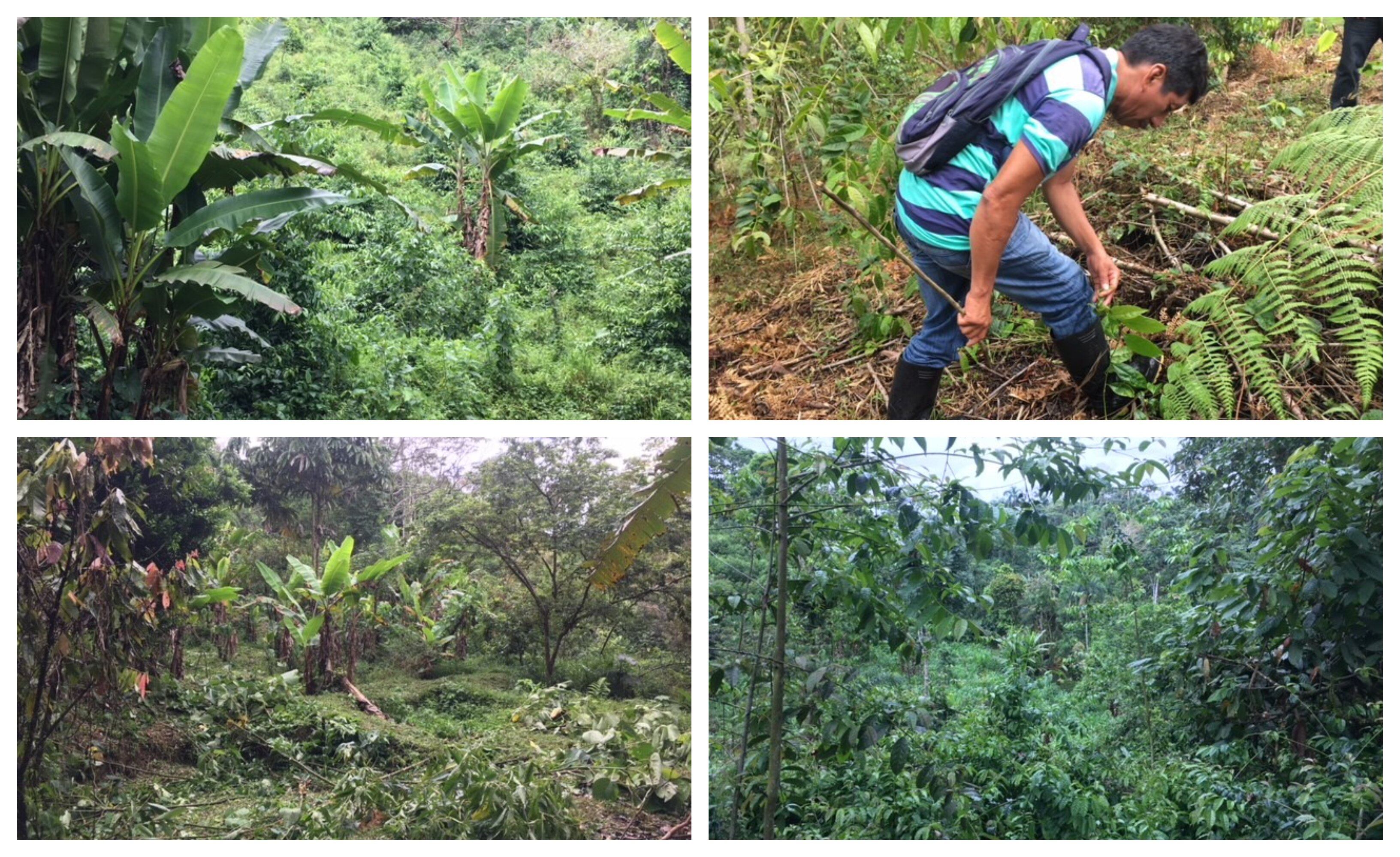
Waykana believes guayusa may have applications in gummies and could be used to extract a natural green color.
“I think this is just the beginning of what the product can do,” said Santander.
[*Based on the ORAC values of ORAC (Oxygen Radical Absorbance Capacity) as measured by Brunswick Laboratories and Advanced Botanical Consulting. The EU says the caffeine content of guayusa is between 19.8 and 57.7 mg per 100 ml.]

